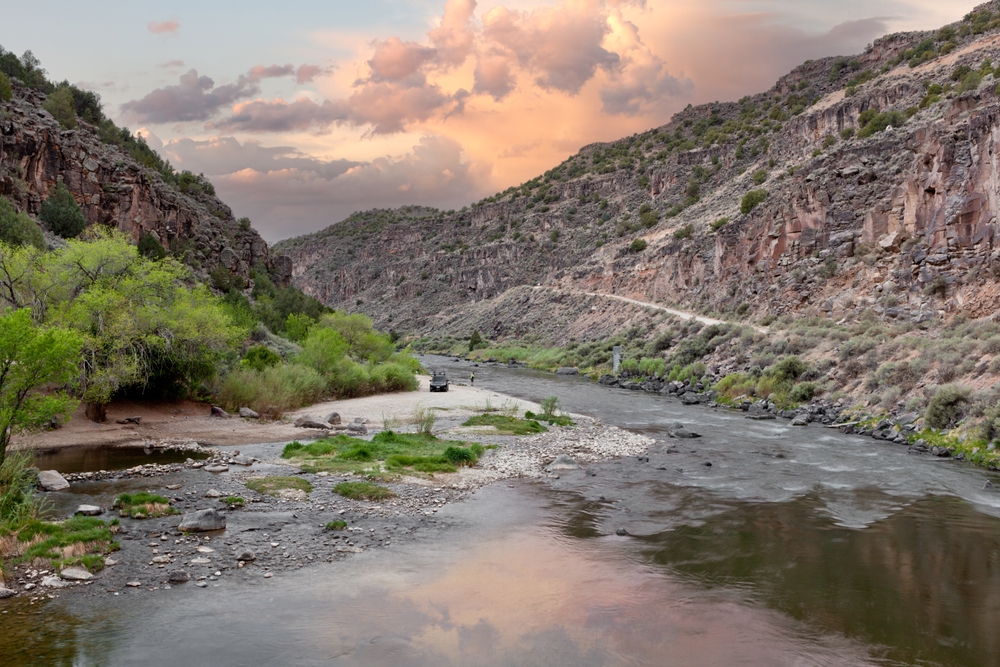The Clean Water Pod podcast takes listeners to the Rio Hondo, a 79-mile-long tributary of the Rio Grande located in northern New Mexico. The river is an important ecological, recreational, cultural and historical resource with its headwaters above the expanding Taos Ski Valley. Impaired by wastewater effluent in the 1970s and ‘80s, water quality since improved and the river was delisted from the impaired waters list. The Rio Hondo now boasts two uncommon measures to ensure its water quality doesn’t deteriorate: a protective total maximum daily load (TMDL), and the Outstanding National Resource Waters (ONRW) state designation – a special protection for waters of “exceptional recreational or ecological significance” under the Clean Water Act.
In this episode, host Jeff Berckes speaks with Shelly Lemon, chief of the Surface Water Quality Bureau in the New Mexico Environment Department; and Rachel Conn, deputy director of Amigos Bravos, a nonprofit water conservation organization in the state. They share the unique history of the area, the role local communities and volunteers play in protecting their rivers, and discuss the balance needed between protecting water quality and managing the impact of increased attention to these areas.

The “Clean Water Pod” is available on most podcast platforms, including Apple Podcasts and Spotify.
Podcast updates are posted on X (@CleanWaterPod), as well as NEIWPCC’s social media channels (@NEIWPCC).
About The Clean Water Pod
Through perspectives and stories from across the country, the “Clean Water Pod” explores the challenges and successes of restoring and protecting water quality through the Clean Water Act 303(d) program.
This podcast is funded by a grant through the U.S. EPA and produced by Flip the Field and NEIWPCC.
Learn more about our work around the 303(d) program.